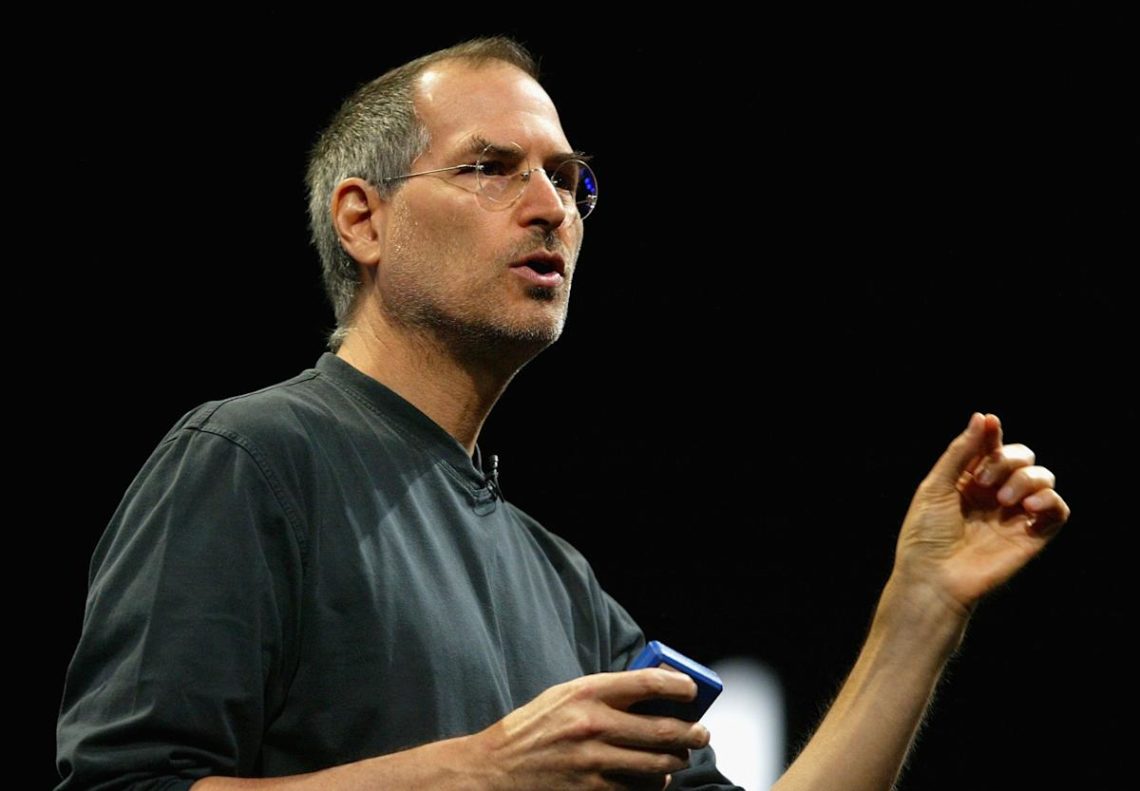-
Apple co-founder Steve Jobs previously revealed how he dealt with the dot-com bust and subsequent economic downturns. Instead of slashing jobs or budgets, the late CEO prioritized “investing(ing) our way through the downturn”—and just two years after the 2008 financial crisis, Apple released the iPad.
Economic uncertainty is a challenge for business leaders of all shapes and sizes, with even a slight indication of worry sending a company’s stock falling.
However, Steve Jobs was a master at keeping his head held high—and his playbook for navigating the 2000 dot-com burst and the 2008 economic crisis might just be the blueprint today’s business leaders need.
The Apple co-founder spoke to Fortune in 2008 about the then-economic downturn.
“What I told our company was that we were just going to invest our way through the downturn,” he said. “That we weren’t going to lay off people, that we’d taken a tremendous amount of effort to get them into Apple in the first place—the last thing we were going to do is lay them off.”
Instead, Jobs revealed he was upping the company’s R&D (research and development) budget “so that we would be ahead of our competitors when the downturn was over.”
“And that’s exactly what we did,” the late CEO added. “And it worked. And that’s exactly what we’ll do this time.”
In 2003, while other companies were still recovering from the collapse of tech stocks, Apple released iTunes. The Nasdaq-100 took more than 15 years to return to its dot-com-era peak. But in the meantime, Apple unveiled the iPhone and the App Store.
By the time the 2008 recession rolled around, Apple was still selling millions of smartphones and computers. Just two years later, the iPad was released.
According to the Harvard Business Review, just 9% of companies flourish after an economic slowdown—and like Apple, businesses that make smart investments when the chips are down have a better chance of becoming leaders in their market.
Apple’s stock had its best day since January 1998 yesterday off the news that President Donald Trump would pause his wide-sweeping tariff plans—which had caused the market to freefall.
However, it’s unlikely that champagne was being passed around at the company’s Cupertino headquarters, given that the trade war with China is seemingly just getting started.
Trump’s increase of the tariff on Chinese goods to 125% bodes bad news for the company, which creates a majority of its signature electronic products overseas. According to Wedbush, Apple produces some 90% of iPhones, 75%-80% of iPads, and over 50% of Macs in China.
Experts tell Fortune that any tariff will likely be passed on directly to consumers, potentially leading to a worst-case scenario where products like the new iPhone 16 balloon to over $2,000—a price tag that most consumers are unlikely to tolerate.
And while Jeff Fieldhack, a research director at Counterpoint Research, an Apple expert, believes Trump’s tariffs remain a negotiation tactic—if the trade war extends for months, it may become impossible for Apple to take Jobs’s weather-the-storm philosophy.
Jamie Dimon, CEO of JP Morgan Chase, has described his management style during the 2008 financial crisis as much more hands-on, but considering banks were at the center of the meltdown, he arguably had no other choice.
He explained to the How Leaders Lead podcast that the then-CEO of Bear Stearns, Alan Schwartz, called him one evening with a stark request: he needed $30 billion that night.
JP Morgan was ultimately able to buy the company later that week and avoid a more dramatic market breakdown, but Dimon said it worked because he prioritized capital, liquidity, and profitability as soon as he became CEO in late 2005.
After working 5 a.m. to 10 p.m. every day, five days a week, for the rest of the crisis, he learned a valuable lesson on how to lead through volatility: “Serve your clients, do a great job in the downs—not just the ups. Don’t celebrate the rising tide, be prepared for the tide to go out.”
This story was originally featured on Fortune.com
The post Apple’s Steve Jobs dealt with the 2008 financial crisis not by layoffs or slimming spending but by investing his way through the downturn—and it paid off appeared first on Fortune.




